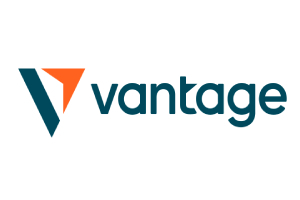THE FORT KNOX OF CRYPTO
In 1803, the United States was still a young, fragile nation, barely three decades old.
The idea of spending $15 million—an enormous sum at the time—on a vast expanse of largely unknown land seemed like madness.
Many questioned the value of this wild western frontier, calling it an empty wilderness, a political gamble.
The diplomatic situation was delicate too. Spain, which had previously controlled the territory, could have objected.
Jefferson wasn’t entirely sure the purchase was legal. There was a very real possibility that it would blow up in his face—financially, diplomatically, or politically.
But France, under Napoleon, was desperate for cash to fund its wars. And this opportunity to double the size of the nation overnight probably wouldn’t happen again.
It worked.
The Louisiana Purchase didn’t just pay off—it transformed the United States into a continental power, opening the door to westward expansion and securing its economic future for generations.
The U.S. is no stranger to making bold, seemingly reckless bets.
Fast forward a century, and we might be facing a similar bold, if seemingly impossible, gamble: Bitcoin.
Yes, the Bitcoin Act
Recently, U.S. Senator Cynthia Lummis proposed what, to many, sounds like complete insanity: The Bitcoin Act.
In effect, the Act would establish a Bitcoin Strategic Reserve—a Fort Knox of crypto.
The U.S. would hold 1 million Bitcoin in cold storage, amounting to 5% of the total supply.
Of course, the U.S. wouldn’t be the first.
Countries like El Salvador have already adopted Bitcoin—viewing it as an asset that can operate independently of their struggling economies.
But, as usual, the devil’s in the details.
So, how would it work?
Two ways.
First, the plan is to fund the Bitcoin purchase program using surplus earnings from the Federal Reserve.
The first $6 billion in annual earnings from the Federal Reserve’s net profits (between 2025 and 2029) will be allocated to buy Bitcoin.
These earnings come from the Federal Reserve’s assets, such as interest on U.S. Treasury bonds.
Second, revaluing the U.S. gold certificates.
The U.S. owns certificates that show how much gold it has. These certificates are still valued based on the price of gold from the 1970s, which is way lower than today: $42.
Lummis wants to revalue these certificates to match current gold prices. This would create billions in new value without having to sell any gold.
The plan involves revaluing these gold certificates and using the difference to purchase Bitcoin over the next five years.
In short, the funding would come from the Federal Reserve’s existing surplus earnings and a revaluation of its gold certificates, rather than new taxes or direct borrowing.
OK. But why would we do this?
Lummis frames it as an effort to protect the U.S. against financial crises, cut our national debt in half by 2045, hedge against inflation, and…
If all goes well…
Cement Bitcoin as a core component of the future global financial system.
All in one fell swoop.
The critics, of course, are howling.
They say it’s crazy.
Bitcoin is volatile, speculative, and untested on the scale of a national reserve asset.
And sure, there’s an argument to be made there—Bitcoin’s value has seen wild swings, and many skeptics believe it’s still too early to treat it as “digital gold.”
Another objection is that holding Bitcoin could weaken the U.S. dollar.
Lummis disagrees:
By adding Bitcoin to the U.S. reserves (alongside assets like gold and land), the government would diversify its holdings. This creates more stability in times of economic uncertainty.
Here’s the big takeaway.
Even if this doesn’t pass…
It does show one thing: For a long time, Bitcoin and other cryptos have been seen as fringe assets, often associated with speculation, dark web transactions, or tech enthusiasts.
Having a high-ranking politician like Lummis propose this marks a turning point.
Yes…
There’s always a chance of failure, but history shows that often the craziest ideas yield the biggest returns.
Another thing: Everyone knows the Bitcoin Act is a crazy idea. When everyone knows it, it’s not as dangerous.
But sometimes really crazy ideas come in glittery packaging so they don’t seem crazy.
Author: Chris Campbell
Source: AltucherConfidential
- Broker
- Min Deposit
- Score
- Visit Broker
- Award-winning Cryptocurrency trading platform
- $100 minimum deposit,
- FCA & Cysec regulated
- 20% welcome bonus of upto $10,000
- Minimum deposit $100
- Verify your account before the bonus is credited
- Fund Moneta Markets account with a minimum of $250
- Opt in using the form to claim your 50% deposit bonus
Learn to Trade
Never Miss A Trade Again

Signal Notification
Real-time signal notifications whenever a signal is opened, closes or Updated

Get Alerts
Immediate alerts to your email and mobile phone.

Entry Price Levels
Entry price level for every signal Just choose one of our Top Brokers in the list above to get all this free.



